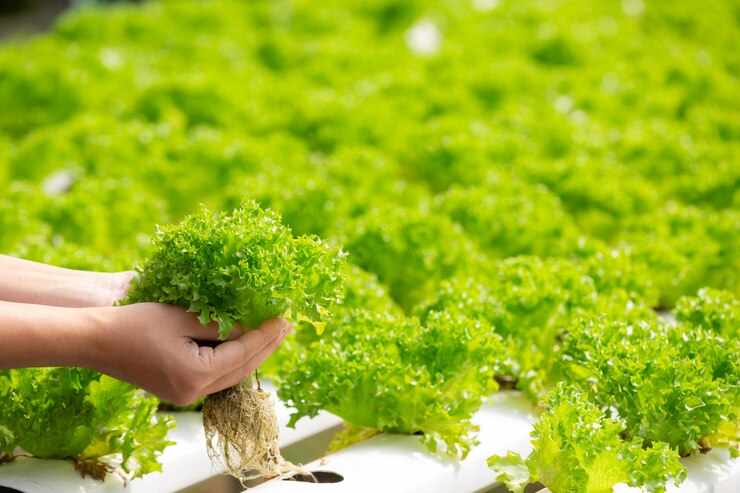In the realm of innovative farming practices, hydroponics has emerged as a groundbreaking technique that challenges conventional notions of soil-based cultivation. This soil-less method is transforming the agricultural landscape, offering a sustainable and efficient alternative to traditional farming. Let’s explore the world of hydroponics, uncovering its principles, advantages, and the profound impact it holds for the future of agriculture.
The Essence of Hydroponics
Hydroponics is a cultivation method where plants grow without soil, receiving essential nutrients directly through a nutrient-rich water solution. Instead of relying on soil as a medium, hydroponic systems use various inert substrates or simply suspend the plant roots in nutrient solutions. This approach allows for precise control over the plant’s environment, resulting in optimal growth conditions.
Precise Nutrient Management
In hydroponics, nutrient solutions are carefully formulated to provide plants with the exact balance of essential elements they need for growth. This precision allows for faster and more efficient nutrient absorption by plant roots, leading to accelerated growth rates and higher yields compared to traditional soil-based cultivation.
Water Conservation: Doing More with Less
One of the standout features of hydroponics is its water efficiency. Traditional farming often involves significant water usage, but hydroponic systems recycle water, using only a fraction of what would be required in conventional agriculture. This water conservation aspect makes hydroponics particularly appealing in regions facing water scarcity or drought conditions.
Year-Round Cultivation and Climate Control
Hydroponics liberates crops from the constraints of seasonal changes and geographical limitations. By creating controlled environments, hydroponic systems allow for year-round cultivation, independent of external weather conditions. This adaptability proves especially valuable in regions with extreme climates, enabling consistent and reliable crop production.
Disease Resistance and Pest Management
The absence of soil in hydroponic systems minimizes the risk of soil-borne diseases and pests that often plague traditional agriculture. This reduction in disease pressure not only ensures healthier plants but also reduces the need for chemical pesticides, aligning hydroponics with sustainable and environmentally friendly farming practices.
Versatility and Space Utilization
Hydroponics offers versatility in crop selection and facilitates the cultivation of a wide variety of plants. Moreover, it excels in space utilization, making it suitable for urban farming and vertical agriculture. The compact nature of hydroponic systems allows farmers to maximize cultivation in limited spaces, contributing to the concept of ‘smart farming.’
Embracing Technology: Automation and Precision
Technology plays a pivotal role in hydroponics, with automated systems and sensors ensuring precise control over environmental factors. From pH and nutrient levels to temperature and humidity, farmers can fine-tune growing conditions with the help of technology, resulting in optimal plant health and productivity.
Cultivating a Hydroponic Future
Hydroponics stands as a beacon of innovation, offering a glimpse into the future of agriculture. Its ability to conserve resources, boost yields, and provide a sustainable alternative to conventional farming methods positions it as a key player in addressing the global challenges of food security and environmental sustainability.
In conclusion, hydroponics is not just a farming technique; it’s a transformative approach that holds the potential to redefine how we grow our food. As technology continues to advance and awareness of sustainable practices grows, hydroponics is poised to play a crucial role in shaping a resilient and efficient agricultural landscape for generations to come.




